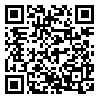Volume 9, Issue 4 (2020)
ORMR 2020, 9(4): 165-186 |
Back to browse issues page
Download citation:
BibTeX | RIS | EndNote | Medlars | ProCite | Reference Manager | RefWorks
Send citation to:



BibTeX | RIS | EndNote | Medlars | ProCite | Reference Manager | RefWorks
Send citation to:
Mazraeh S, Shaemi Barzoki A, Safari A. The Paradigm Model of Employer Brand from High-Educated Emloyees Perspective. ORMR 2020; 9 (4) :165-186
URL: http://ormr.modares.ac.ir/article-28-37037-en.html
URL: http://ormr.modares.ac.ir/article-28-37037-en.html
1- Ph.D. Candidate in Business Management, Faculty of Administrative Sciences and Economics, University of Isfahan,Isfahan, Iran.
2- Associate Prof., Faculty of Administrative Sciences and Economics, University of Isfahan,Isfahan, Iran. ,shaemi@ase.ui.ac.ir
3- Associate Prof., Faculty of Administrative Sciences and Economics, University of Isfahan,Isfahan, Iran.
2- Associate Prof., Faculty of Administrative Sciences and Economics, University of Isfahan,Isfahan, Iran. ,
3- Associate Prof., Faculty of Administrative Sciences and Economics, University of Isfahan,Isfahan, Iran.
Abstract: (5613 Views)
Objective: This paper aimed to identify and classify high-educated emloyees expectations from the organization, and deisign a model of employer brand based on their expectations.
Methods: This paper has a qualitative approach and used the grounded theory as a research method. In-depth and semi-structured interviews were used o collect data. In this regard, 25 experts who has job experience and high educationand graduated from high level universities participate in job interviews. The validity of this research was examined and approved by the interviewers, professors, and by content validity ratiowith coefficience of%62. And the reliability was %81 which obtained by using auditing result processmethodology. For data analysis, we used the continuous comparison method in three stages: open, axial, and selective coding.
Results: Results revealed that mutual expectations between employee, job and organization had significant effects on employer brand experiences. Also, it was shown that employer brand experiences with contextual conditions (organizational capabilities, employer branding executive requirements, employer branding executives and HR management subsystems), and intervening conditions (candidate’s persona, employer content marketing, employer branding challenges) had significant effects on employer brand equity strategies. Additionally, the findings indicated that the consequences of employee’s attraction and retaintion, improvement of organizational and employee performance, customer and market, business brand, brand awareness, HR and external consequences.
Methods: This paper has a qualitative approach and used the grounded theory as a research method. In-depth and semi-structured interviews were used o collect data. In this regard, 25 experts who has job experience and high educationand graduated from high level universities participate in job interviews. The validity of this research was examined and approved by the interviewers, professors, and by content validity ratiowith coefficience of%62. And the reliability was %81 which obtained by using auditing result processmethodology. For data analysis, we used the continuous comparison method in three stages: open, axial, and selective coding.
Results: Results revealed that mutual expectations between employee, job and organization had significant effects on employer brand experiences. Also, it was shown that employer brand experiences with contextual conditions (organizational capabilities, employer branding executive requirements, employer branding executives and HR management subsystems), and intervening conditions (candidate’s persona, employer content marketing, employer branding challenges) had significant effects on employer brand equity strategies. Additionally, the findings indicated that the consequences of employee’s attraction and retaintion, improvement of organizational and employee performance, customer and market, business brand, brand awareness, HR and external consequences.
Article Type: Qualitative Research |
Subject:
Organizational Behavior and Human Resource Management
Received: 2019/10/3 | Accepted: 2020/03/14 | Published: 2020/03/14
Received: 2019/10/3 | Accepted: 2020/03/14 | Published: 2020/03/14
Send email to the article author
| Rights and permissions | |
 |
This work is licensed under a Creative Commons Attribution-NonCommercial 4.0 International License. |







